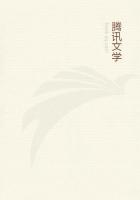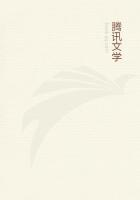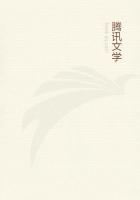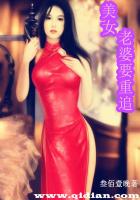The wily Simon de Montfort had attempted a little ruse which centered the fighting for a time upon the crest of one of the hills.He had caused his car to be placed there, with the tents and luggage of many of his leaders, under a small guard, so that the banners there displayed, together with the car, led the King of the Romans to believe that the Earl himself lay there, for Simon de Montfort had but a month or so before suffered an injury to his hip when his horse fell with him, and the royalists were not aware that he had recovered sufficiently to again mount a horse.
And so it was that the forces under the King of the Romans pushed back the men of Henry de Montfort, and ever and ever closer to the car came the royalists until they were able to fall upon it, crying out insults against the old Earl and commanding him to come forth.And when they had killed the occupants of the car, they found that Simon de Montfort was not among them, but instead he had fastened there three important citizens of London, old men and influential, who had opposed him, and aided and abetted the King.
So great was the wrath of Prince Richard, King of the Romans, that he fell upon the baronial troops with renewed vigor, and slowly but steadily beat them back from the town.
This sight, together with the routing of the enemy's left wing by Prince Edward, so cheered and inspired the royalists that the two remaining divisions took up the attack with refreshed spirits so that, what a moment before had hung in the balance, now seemed an assured victory for King Henry.
Both De Montfort and the King had thrown themselves into the melee with all their reserves.No longer was there semblance of organization.Division was inextricably bemingled with division; friend and foe formed a jumbled confusion of fighting, cursing chaos, over which whipped the angry pennons and banners of England's noblest houses.
That the mass seemed moving ever away from Lewes indicated that the King's arms were winning toward victory, and so it might have been had not a new element been infused into the battle; for now upon the brow of the hill to the north of them appeared a great horde of armored knights, and as they came into position where they could view the battle, the leader raised his sword on high, and, as one man, the thousand broke into a mad charge.
Both De Montfort and the King ceased fighting as they gazed upon this body of fresh, well armored, well mounted reinforcements.Whom might they be ?
To which side owned they allegiance ? And, then, as the black falcon wing on the banners of the advancing horsemen became distinguishable, they saw that it was the Outlaw of Torn.
Now he was close upon them, and had there been any doubt before, the wild battle cry which rang from a thousand fierce throats turned the hopes of the royalists cold within their breasts.
"For De Montfort ! For De Montfort !" and "Down with Henry !" rang loud and clear above the din of battle.
Instantly the tide turned, and it was by only the barest chance that the King himself escaped capture, and regained the temporary safety of Lewes.
The King of the Romans took refuge within an old mill, and here it was that Norman of Torn found him barricaded.When the door was broken down, the outlaw entered and dragged the monarch forth with his own hand to the feet of De Montfort, and would have put him to death had not the Earl intervened.
"I have yet to see my mark upon the forehead of a King," said Norman of Torn, "and the temptation be great; but, an you ask it, My Lord Earl, his life shall be yours to do with as you see fit.""You have fought well this day, Norman of Torn," replied De Montfort.
"Verily do I believe we owe our victory to you alone; so do not mar the record of a noble deed by wanton acts of atrocity.""It is but what they had done to me, were I the prisoner instead," retorted the outlaw.
And Simon de Montfort could not answer that, for it was but the ****** truth.
"How comes it, Norman of Torn," asked De Montfort as they rode together toward Lewes, "that you threw the weight of your sword upon the side of the barons ? Be it because you hate the King more ?""I do not know that I hate either, My Lord Earl," replied the outlaw."Ihave been taught since birth to hate you all, but why I should hate was never told me.Possibly it be but a bad habit that will yield to my maturer years.
"As for why I fought as I did today," he continued, "it be because the heart of Lady Bertrade, your daughter, be upon your side.Had it been with the King, her uncle, Norman of Torn had fought otherwise than he has this day.So you see, My Lord Earl, you owe me no gratitude.Tomorrow I may be pillaging your friends as of yore."Simon de Montfort turned to look at him, but the blank wall of his lowered visor gave no sign of the thoughts that passed beneath.
"You do much for a mere friendship, Norman of Torn," said the Earl coldly, "and I doubt me not but that my daughter has already forgot you.An English noblewoman, preparing to become a princess of France, does not have much thought to waste upon highwaymen." His tone, as well as his words were studiously arrogant and insulting, for it had stung the pride of this haughty noble to think that a low-born knave boasted the friendship of his daughter.
Norman of Torn made no reply, and could the Earl of Leicester have seen his face, he had been surprised to note that instead of grim hatred and resentment, the features of the Outlaw of Torn were drawn in lines of pain and sorrow; for he read in the attitude of the father what he might expect to receive at the hands of the daughter.


